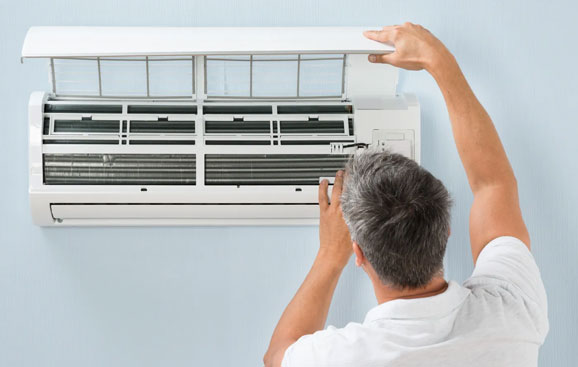Introduction:
Your heating, ventilation, and air conditioning (HVAC) system is a vital component of your home, ensuring comfort and climate control year-round. To ensure its longevity and efficient performance, regular maintenance is key. In this blog post, we’ll explore expert maintenance tips to extend the lifespan of your HVAC system.
Regular Filter Replacement:
One of the simplest yet most effective maintenance tasks is regular filter replacement. Dirty filters restrict airflow, causing your HVAC system to work harder and potentially leading to increased energy consumption. Check and replace filters every 1-3 months, depending on usage.
Scheduled Professional Inspections:
Enlist the expertise of a professional HVAC technician for regular inspections. They can identify and address minor issues before they escalate into major problems. Ideally, schedule inspections twice a year – before the cooling and heating seasons.
Clean Air Vents and Ducts:
Dust, debris, and allergens can accumulate in your air vents and ducts, reducing airflow efficiency and indoor air quality. Regularly clean these components to prevent blockages and maintain optimal airflow.
Check and Seal Ductwork:
Leaky ductwork can result in energy wastage as conditioned air escapes before reaching its intended destination. Perform periodic checks and seal any gaps or leaks to ensure efficient airflow and better temperature control.
Keep the Area Around Outdoor Unit Clear:
For central air conditioning systems, ensure that the area around the outdoor unit is free from debris, leaves, and other obstructions. Proper airflow around the unit is essential for efficient operation.
Thermostat Calibration:
Calibrating your thermostat ensures accurate temperature readings and prevents your HVAC system from overworking. A properly calibrated thermostat contributes to energy savings and a longer system lifespan.
Lubricate Moving Parts:
Moving parts in your HVAC system, such as motors and fans, require proper lubrication to reduce friction and wear. Regularly lubricating these components can help prolong their lifespan.
Monitor Refrigerant Levels:
For air conditioning systems, maintaining the right refrigerant levels is crucial for optimal cooling performance. Low refrigerant levels can strain the system and potentially lead to compressor damage.
Upgrade Insulation:
Enhancing your home’s insulation reduces the workload on your HVAC system. Proper insulation helps maintain consistent indoor temperatures, easing the strain on your system during extreme weather conditions.
Invest in a Programmable Thermostat:
A programmable thermostat allows you to set different temperature levels for various times of the day. This feature prevents unnecessary strain on your HVAC system and can lead to energy savings.
Conclusion:
Regular maintenance is the cornerstone of extending the life of your HVAC system. By following these expert tips, you can ensure that your system operates efficiently, provides optimal comfort, and saves on energy costs in the long run. Remember, a well-maintained HVAC system not only adds to your home’s value but also contributes to a healthier and more comfortable living environment.

